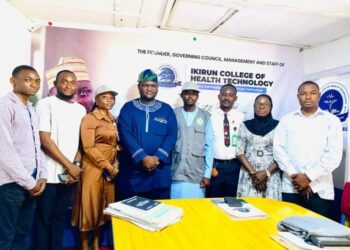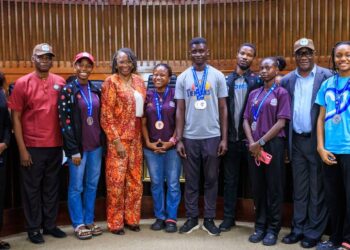The Lagos State Ministry of Basic and Secondary Education has reaffirmed its partnership with the West African Examinations Council (WAEC) to strengthen examination standards, enhance assessment processes, and advance the digital transformation of examinations across the state.
The renewed commitment was contained in a communiqué issued on Sunday following the State Committee of WAEC meeting held under the supervision of the ministry.
The session was chaired by the Commissioner for Basic and Secondary Education, Mr. Jamiu Alli-Balogun, and attended by top officials including the Permanent Secretary, Mrs. Abisola Dokunmu Adegbite; the Permanent Secretary, Teaching Service Commission (TESCOM), Mrs. Bopo Oyekan Ismaila; and Tutor Generals/Permanent Secretaries from Education Districts I, II, III, and VI.
Speaking after the meeting, Mr. Alli-Balogun emphasized the state’s unwavering collaboration with WAEC, noting that the committee’s structure had been updated to align with current realities in Lagos’ education system.
> “The revised composition now includes the six Tutor Generals, TESCOM, the Office of Education Quality Assurance, and the Parents Forum to ensure broader representation and stronger collaboration,” he explained.
The commissioner reiterated the government’s zero-tolerance stance on examination malpractice, directing that all reported cases and disciplinary actions be formally communicated to affected schools through appropriate ministry channels.
He assured stakeholders that Lagos would continue to promote fairness, integrity, and transparency in all examinations, ensuring that every student competes strictly on merit.
During the meeting, WAEC’s Zonal Coordinator, Mr. Rafiu Atoyebi, presented a performance analysis across states and subjects, and briefed members on the council’s upcoming transition to Computer-Based Testing (CBT).
He revealed that the new system would initially run as a hybrid model, with a pilot phase for selected subjects conducted at Joint Admissions and Matriculation Board (JAMB)-accredited centres across the country.
> “The shift to computer-based testing represents the future of assessment in West Africa,” Atoyebi stated. “It will reduce logistical challenges, minimize malpractice, and enhance the credibility of examination outcomes through technology-driven evaluation.”
Atoyebi also assured stakeholders that connectivity and rural access issues would not hinder participation, adding that WAEC is fully prepared to roll out computer-based WASSCE examinations by 2026.


















































































 EduTimes Africa, a product of Education Times Africa, is a magazine publication that aims to lend its support to close the yawning gap in Africa's educational development.
EduTimes Africa, a product of Education Times Africa, is a magazine publication that aims to lend its support to close the yawning gap in Africa's educational development.